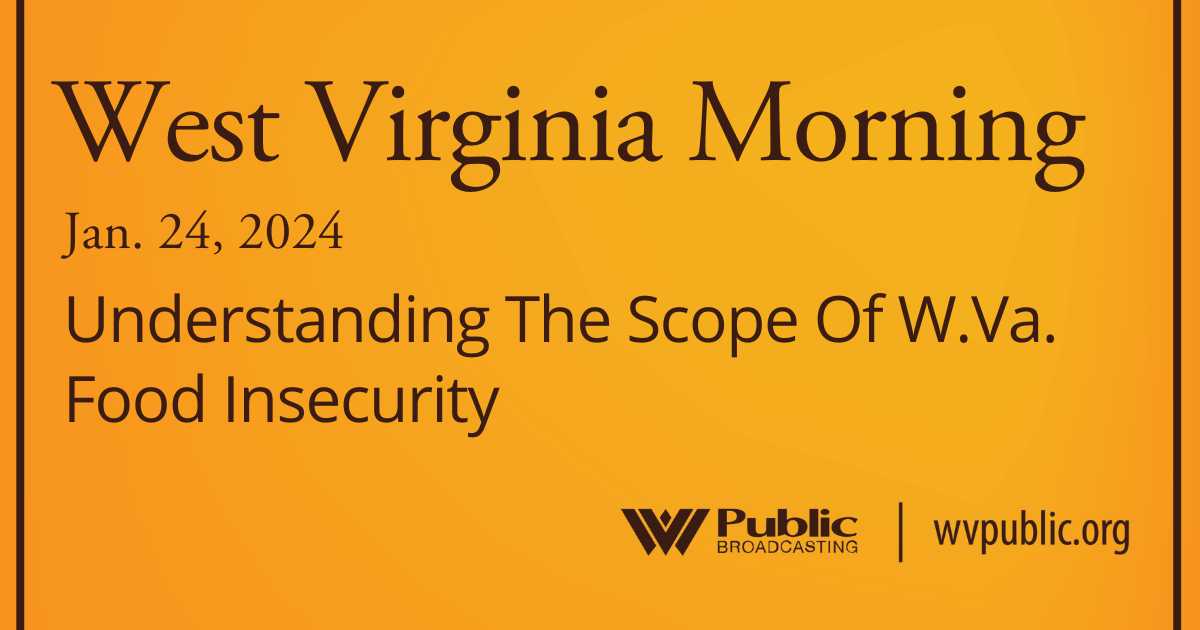According to food bank network Feeding America, one in eight people in West Virginia face hunger every day. Advocates brought the issue to the Capitol Thursday during the legislature’s Hunger Free Day.
According to food bank network Feeding America, one in eight people in West Virginia face hunger every day. Advocates brought the issue to the Capitol Thursday during the West Virginia Legislature’s Hunger Free Day.
The Facing Hunger Foodbank estimates it serves 130,000 West Virginians each year. Mountaineer Food Bank estimates more than 200,000 West Virginians struggle with food insecurity every day.
With the rising cost of food only worsening hunger in the state, both organizations came to the legislature Thursday to advocate for solutions.
“This day is really about our hungry neighbors,” said Chad Morrison, chief executive officer of Mountaineer Food Bank. “Folks out there are struggling, and the need for food is at an all time high. We want to be here at the Capitol to make sure that our legislators know that need’s out there, that it’s consistent. We’re seeing record numbers of people… and right now it’s a real struggle for us to meet all those needs.”
The U.S. Bureau of Labor Statistics reported food costs increased more than 10 percent in 2022. Morrison said the legislature can help by increasing the resources available to food banks and pantries, and facilitate connections to local producers to reduce cost and keep spending in the community.
“There’s just a lot of different opportunities for them to get engaged and we’re hopeful,” he said. “We’re hopeful that this year there is another work group around hunger as there was last session, and that’s going to spur some more discussions about food insecurity in the state.”
Liv Brunello is part of the Voices of Hunger group from the Food for All Coalition.
“I think it’s a really aspirational title, you know, like, we want West Virginia to be Hunger Free,” she said. “But at the same time, it’s a patchwork effort. It’s volunteers and senior citizens and people from all different parts of the community coming together to try to figure it out. We believe in a future where food is recognized as a human right by our state. Where people really are hunger-free, where we don’t need to patchwork everything together. Where everyone has nutritious, affordable access to the food that they and their family want to eat.”
Brunello said she wants to see the legislature and the state as a whole take more aggressive action, such as passing an amendment to the state constitution declaring food a human right.
For now, the legislature is sticking to more immediate action.
Earlier in the day, the Senate Education Committee advanced Senate Bill 306, which would establish the Summer Feeding for All Program.
Committee Chair Sen. Amy Grady, R-Mason, is the bill’s co-sponsor. She said the bill will hopefully help counties and schools better identify hungry students and how best to help them.
“The Summer Feeding Program isn’t really a program where the counties go out and feeds students, most counties already do that,” Grady said. “What it does is it provides an assessment tool where counties can look and say, ‘Do we have food insecurity in certain areas? Do we have organizations, churches, community places that are offering to help with this? And if we don’t, who can we look to, to make sure we’re helping, or can we use our resources to make sure these kids are fed?’”
Grady said it can be hard for people not involved in the school system to see just how big the issue of hunger is for West Virginia’s students. As a teacher, she knows that when students are hungry, they have a harder time learning.
“We’re focusing a whole lot on improving student success in our schools,” Grady said. “We need to be climbing up, we need to bring our students up and we have to understand if their basic needs aren’t met, which is hunger, food insecurity, they’re not going to be able to learn. Addressing that is taking care of the whole child and giving them the opportunities they need to make sure they are successful.”
